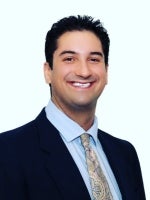Greetings TCPAWorld!
I’m back with another interesting case update to put on your radar! VanderSloot v. Charles Baratta LLC, No. 24-CV-07096 (JMW), 2025 WL 2605343 (E.D.N.Y. Sept. 9, 2025), just dropped from the Eastern District of New York, where the Court granted Defendant’s Motion to Bifurcate Discovery. Still, the reasoning behind this decision provides valuable insights into when courts will (and won’t) stay class discovery pending resolution of individual liability questions.
So let’s break this down so this makes sense. Here, Plaintiff registered his number on the National Do Not Call Registry. Still, starting August 30, 2023, he allegedly received over one hundred calls (yes, you read that right, 100 calls) from allegedly fictitious individuals with names such as “Tiffany” from the “Medical Health Department,” “DeAndre,” and “Christopher” from “Legal Helpers.” The twist? Plaintiff alleges these phantom personas were all Charles Baratta d/b/a Prime Marketing, using elaborate identity schemes to generate leads. We see this argument time and time again, where Plaintiff’s claim “upon information and belief” scenarios in the Complaint to link the companies to incur liability.
The calls followed a sophisticated pattern. A representative identifying herself as “Tiffany” directed Plaintiff to an individual named “Christopher Garcia,” who provided an email address connected to Prime Marketing, revealing the alleged affiliation. Coordinated text messages, then guided Plaintiff through verification steps, giving the appearance of an integrated lead generation funnel.
When Plaintiff sued under 47 U.S.C. § 227 et seq., seeking class certification, Defendant moved to bifurcate discovery, asking the Court to focus first on whether Defendant actually made the calls before diving into an expensive class-wide investigation.
So what is bifurcation? Bifurcation “is properly understood as a stay of class discovery pending resolution of plaintiff’s individual claim.” Chow v. SentosaCare, LLC, No. 19-CV-2541 (FR), 2020 WL 559704, at *1 (E.D.N.Y. Jan. 23, 2020). District Courts have “considerable discretion to stay discovery” under Federal Rule of Civil Procedure 26(c), with the moving party bearing the burden of establishing good cause. See Local 3621, EMS Officers Union, DC-37, AFSCME, AFL-CIO v. City of N.Y., No. 18-CV-4476 (LJL) (SLC), 2020 WL 1166047, at *5 (S.D.N.Y. Mar. 11, 2020).
Next, you need a showing of good cause. Good cause may exist “where the ‘resolution of a single issue may resolve the case and render trial on the other issue[s] unnecessary,'” Charvat v. Plymouth Rock Energy, LLC, No. 15-CV-4106 (JMA) (SIL), 2016 WL 207677, at *2 (E.D.N.Y. June 5, 2013) (quoting Tabor v. N.Y. City, No. 11-CV-0195, 2012 WL 603561, at *10 (E.D.N.Y. Feb. 23, 2012)), or where “a narrow, potentially dispositive issue,” being “totally distinct from class issues,” has the potential render Plaintiff’s TCPA claim baseless. Id. (quoting Physicians Healthsource, Inc. v. Janssen Pharms., Inc., No. 12-CV-2132, 2014 WL 413534, at *2 (D.N.J. Feb. 4, 2014)).
However, bifurcation remains an exception. Harris v. Shore Funding Solutions Inc., No. 23-cv-00789 (JMA) (JMW), 2023 WL 3440077, at *2 (E.D.N.Y. Apr. 21, 2023). Courts will deny bifurcation “where discovery relating to class issues overlaps substantially with merits discovery” because “bifurcation will result in duplication of efforts and needless line-drawing disputes.” Charvat, 2016 WL 207677 at *1 (quoting Hines v. Overstock.com, Inc., No. 09-CV-991, 2010 WL 2775921, at *1 (E.D.N.Y. July 13, 2020)).
Here, the Court Judge Wicks found bifurcation appropriate based on three key factors, relying heavily on the nearly identical circumstances in Harris. By way of example, in Harris, this Court granted bifurcation under “strikingly similar circumstances” where the defendant sought to explore “the threshold issue of whether Plaintiff received a call from Defendant” and “whether Plaintiff owns the phone to which the number is assigned.” Harris, 2023 WL 3440077 at *2. The Court determined that discovery regarding whether defendant actually called plaintiff was “distinct from class issues” because the proposed bifurcated discovery would involve plaintiff’s individual phone records, defendant’s specific call records, and “other categories that do not specifically relate to the larger proposed class of individuals.” Id. at *3.
Here, the Court found the same separation. The proposed limited discovery would “gather telephone logs evidencing the purported calls, confirm Plaintiff’s ownership of the (208) XXX-XXXX telephone number, show alleged text messages and/or emails that were exchanged, any relevant phone recordings of the Subject Calls, and verify through carrier data the origin of said call.” These issues “do not specifically relate to the class” but instead are “particular to Plaintiff and the communications he had with Defendant.” VanderSloot, 2025 WL 2605343 at *4.
The Court also noted Cameron v. CHW Group, Inc., No. 23-cv-00320-HCN-DBP, 2025 WL 2336513, at *3 (D. Utah Aug. 13, 2025) (finding “enough separation between class discovery and individual discovery to warrant bifurcation” including discovery concerning whether plaintiff received telephone solicitations within the TCPA by defendant). Additionally, the Court distinguished cases where bifurcation failed due to overlap. For instance, in Cunningham v. Big Think Cap. Inc., No. 21-CV-02162 (DRH) (JMW), 2021 WL 4407749, at *3 (E.D.N.Y. Sept. 27, 2021), bifurcation was inappropriate where issues of consent “concern[ed] the same online application and consent agreement” that all class members and plaintiff received.
Indeed, “resolution of [the] narrow, potentially dispositive issue ha[d] the potential to render Plaintiff’s TCPA claim baseless and may resolve the case.” Harris, 2023 WL 3440077 at *4. This factor proves critical because determining whether Defendant initiated the calls is dispositive on a direct liability claim. Banks v. Pro Custom Solar, 416 F. Supp. 3d 171, 173 (E.D.N.Y. 2018) (noting that to establish direct liability under the TCPA, plaintiff must allege that a defendant initiated the unsolicited call).
With this in mind, the Court emphasized that Plaintiff stipulated on the record that the Amended Complaint seeks only claims of direct liability under the TCPA, which does not encompass a claim of vicarious liability. This stipulation made the question of whether Defendant placed the calls entirely dispositive. Under the Court’s reasoning and anasylis, the Court compared Fania v. Kin Ins., Inc., No. 22-12354, 2024 WL 2607303, at *2 (E.D. Mich. May 24, 2024) (bifurcating discovery to address the “case-dispositive questions” of whether plaintiff received a pre-recorded call and whether defendant was legally responsible for such calls), with Simmons v. Author Reputation Press LLC, No. 24-12330-BEM, 2025 WL 863601, at *2 (D. Mass. Mar. 18, 2025) (denying motion to bifurcate where defendant provided “no specific basis on which to conclude” plaintiff’s individual claim was “vulnerable to early defeasance”).
Judge Wicks acknowledged that the hefty litigation expenses and an extensive use of judicial resources are common in TCPA class actions. See Physicians Healthsource, Inc. v. Janssen Pharms., Inc., No. 12-2132 (FLW), 2014 WL 413534, at *4 (D.N.J. Feb. 4, 2014) (“It is also generally understood that the costs can be particularly ‘enormous’ for defendants.”).
An important point the Court picked up on was that the majority of Plaintiff’s initial discovery demands were tailored towards a theory of vicarious liability, notwithstanding Plaintiff’s stipulation to the contrary. Plaintiff’s interrogatories demanded the production of all communications with any third party concerning this litigation, all documents reflecting information about each outbound telemarketing call made by Defendant or its vendors, and all complaints regarding such calls. This discovery extends well beyond the theory of direct liability and seeks expansive information from third parties, thereby increasing potential costs and expenses. This is distinguishable from Charvat, where the Court denied a motion to bifurcate, where defendant submitted no information suggesting that the discovery requests would be voluminous, unduly burdensome to produce, or disproportionate to the needs of the case. See Charvat, 2016 WL 207677 at *2.
Also crucial is the timing and prejudice analysis regarding a motion to bifurcate discovery. Judge Wicks considered the case’s early stage, where this case remained “in its nascent stages” with discovery stayed since February 7, 2025, pending disposition of Defendant’s Motion to Dismiss. This mirrored Harris, where “the case is in its infancy” and the Court had “entered a Scheduling Order and set a briefing schedule for Defendant’s motion to bifurcate discovery.” Harris, 2023 WL 3440077 at *1, *5.
Though Plaintiff claimed prejudice from being “deprived of information needed to develop his current and alternative theories,” the Court found “any asserted prejudice is neutralized by the early stage of this case coupled with the burdens and costs associated with unnecessary class action discovery under the TCPA.” VanderSloot, 2025 WL 2605343 at *5.
In the end, the Court’s reasoning was clear and deliberate, ultimately granting Defendant’s Motion for Bifurcation. This decision reinforces the importance of phasing discovery to balance efficiency with fairness.




 />i
/>i

